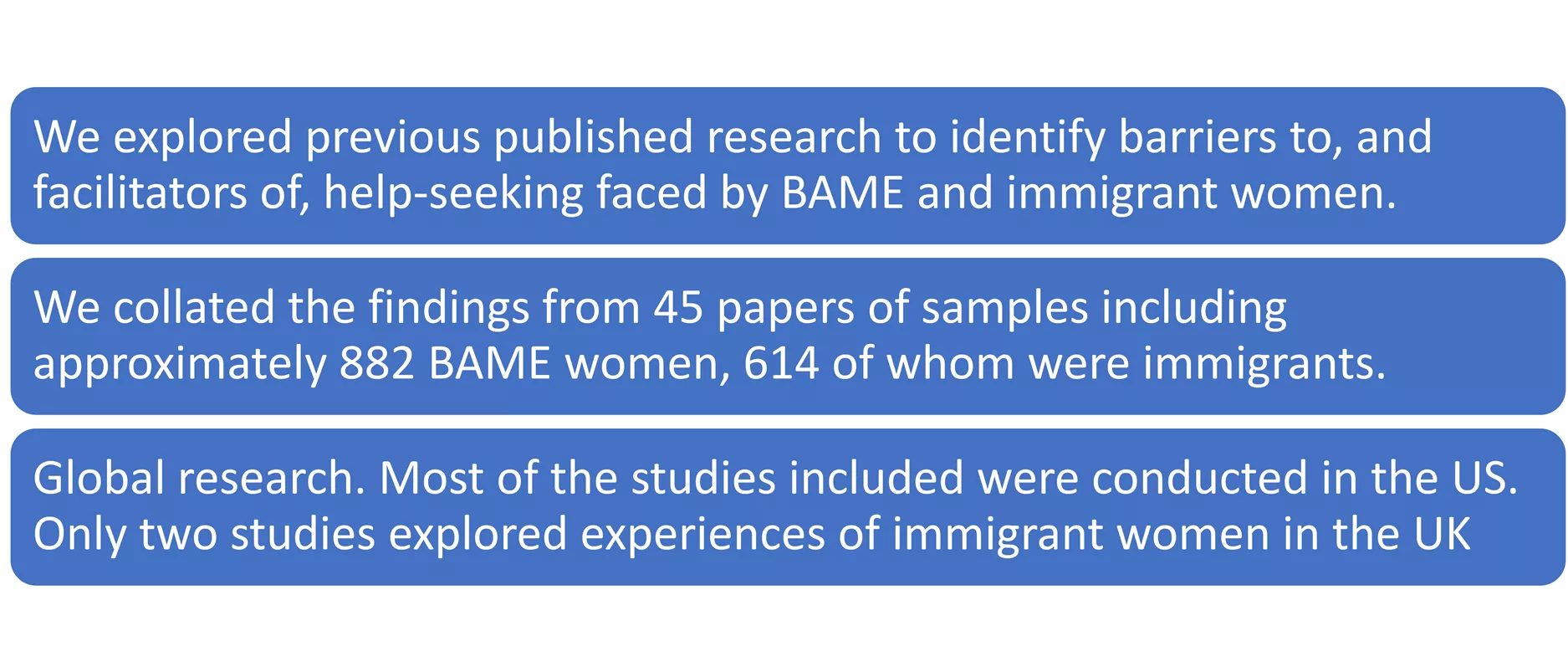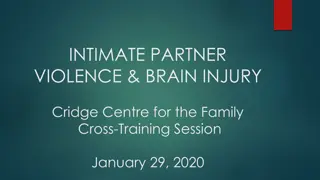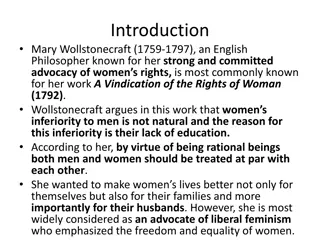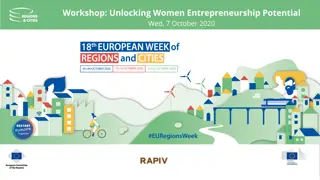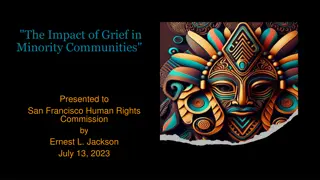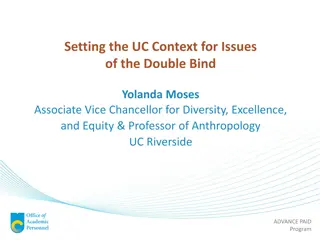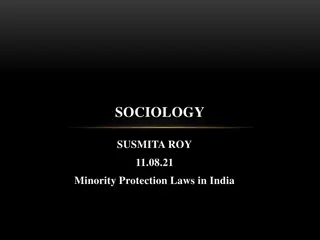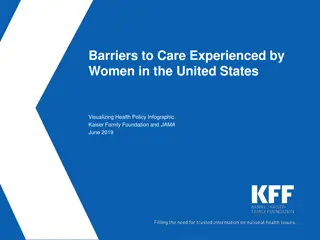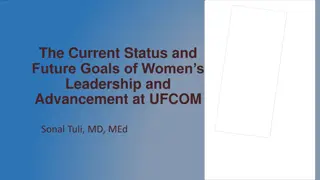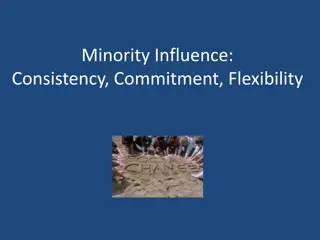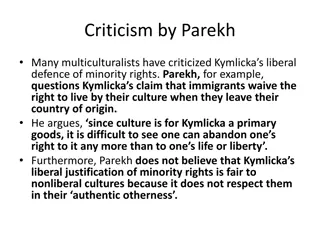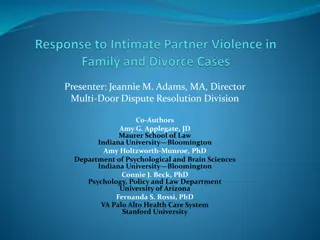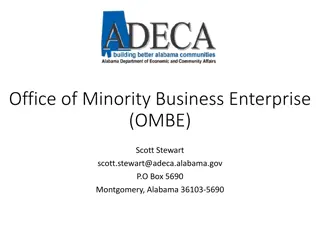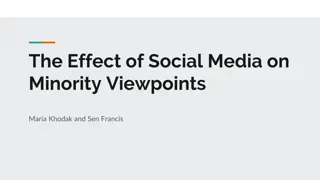Challenges Faced by Minority Women in Help-Seeking for IPV
Exploration of research reveals barriers to help-seeking for Black, Asian, minority ethnic, and immigrant women experiencing intimate partner violence (IPV). These barriers include cultural norms, religion, immigration issues, racism/discrimination, and lack of cultural competence in services, affecting their willingness to seek help. Examples such as patriarchy and family honor illustrate the complexities faced by these women, emphasizing the need for culturally sensitive support services.
Download Presentation

Please find below an Image/Link to download the presentation.
The content on the website is provided AS IS for your information and personal use only. It may not be sold, licensed, or shared on other websites without obtaining consent from the author. Download presentation by click this link. If you encounter any issues during the download, it is possible that the publisher has removed the file from their server.
E N D
Presentation Transcript
Black, Asian, minority ethnic and immigrant IPV victim s experiences of help-seeking Dr Joanne Hulley None in Three is funded by:
Context We explored previous published research to identify barriers to, and facilitators of, help-seeking faced by BAME and immigrant women. We collated the findings from 45 papers of samples including approximately 882 BAME women, 614 of whom were immigrants. Global research. Most of the studies included were conducted in the US. Only two studies explored experiences of immigrant women in the UK
Findings Barriers to help-seeking are greater for BAME women and even greater for immigrant women, due to: Cultural norms and values Religion Immigration issues Racism/discrimination Lack of cultural competence and diversity within frontline services
Barrier cultural norms and values Patriarchy If your husband says something that you do not like, your obligation is to shut up and put up with it, because he is your husband, I mean you already got married, you are there and you put up with it (Latina) (Silva-Martinez, 2016, p531). Patriarchy If your husband says something that you do not like, your obligation is to shut up and put up with it, because he is your husband, I mean you already got married, you are there and you put up with it (Latina) (Silva-Martinez, 2016, p531). The woman whom I marry should be as docile as a sheep, and should never talk back a Chinese respondent, recalling her husband s announcement. (Chiu, 2017, p1301). Normalization of abuse In my country it is okay for men to discipline their wives. I told myself this was not abuse, this was normal discipline (African) (Ting, 2010 p353). In Mexico is normal to have fights is like there is still machismo in Mexico like everything is part of marriage I thought it (domestic violence) was part of marriage (Reina et al, 2014, p602). In Mexico is normal to have fights is like there is still machismo in Mexico like everything is part of marriage I thought it (domestic violence) was part of marriage (Reina et al, 2014, p602). The woman whom I marry should be as docile as a sheep, and should never talk back a Chinese woman, recalling her husband s announcement (Chiu, 2017, p1301). Normalization of abuse In my country it is okay for men to discipline their wives. I told myself this was not abuse, this was normal discipline (African) (Ting, 2010 p353).
Barrier cultural norms and values (continued) Family honour Family honour My father said, if you divorce, you are dead to me, do not come back home (South Asian woman) (Tonsing & Barn, 2017, p633). As the cultural Indian girl, I m not allowed to leave him, because I can change the man by changing my tactics. It will be a disgrace to the family. The children will have a black spot on their name, and no one will marry them when they get older (Sabri et al, 2018, p247). I am married to my first cousin so tolerated it (the abuse) because women get divorce then many families get affected it will disrupt family (Tonsing, 2016, p22). As the cultural Indian girl, I m not allowed to leave him, because I can change the man by changing my tactics. It will be a disgrace to the family. The children will have a black spot on their name, and no one will marry them when they get older (Sabri et al, 2018, p247). My father said, if you divorce, you are dead to me, do not come back home (Tonsing & Barn, 2017, p633).
Barrier - religion ). Prioritization of religion over women s safety He told me that the women who is patient with her husband s bad deeds will go to paradise I said to them I don t want to go to paradise this much quick. If I stay with him I will die soon (Ghafournia, 2017, p154). In the words of one Latina victim, her catholic faith meant that her situation was interpreted as an unchangeable circumstance designed by god as a challenge to be met with dignity in order to enter heaven after death (Vidales, 2010, p537). Family members used religion to pressurize women to remain loyal to their marriage vows My mother said to me that divorce is not Christian; God will not accept it. She asks why I insist on doing this. I explained to her how he treats me, but she does not believe it (Ting & Panchandeswaran, 2009, p824). Prioritization of religion over women s safety He told me that the women who is patient with her husband s bad deeds will go to paradise I said to them I don t want to go to paradise this much quick. If I stay with him I will die soon (Ghafournia, 2017, p154). Family members used religion to pressurize women to remain loyal to their marriage vows My mother said to me that divorce is not Christian; God will not accept it. She asks why I insist on doing this. I explained to her how he treats me, but she does not believe it (Ting & Panchandeswaran, 2009, p824).
Barrier racism/discrimination Influence of stereotypes African American women were reluctant to confide in friends and family They are aware of the impact that racism has on their friends and family members and do not wish to subject them to further oppression by other actors, such as police (Monterrosa, 2019, p16). Influence of stereotypes African American women were more isolated from formal support in the form of state services than their majority ethnic counterparts who were white Americans (Few, 2005). support in the form of state services than their majority ethnic counterparts who were white Americans (Few, 2005). African American women were reluctant to confide in friends and family They are aware of the impact that racism has on their friends and family members and do not wish to subject them to further oppression by other actors, such as police (Monterrosa, 2019, p16). African American women were more isolated from formal
Barrier immigration issues Immigration status Increased isolation Language Unfamiliarity with laws and services
to stay Barrier immigration issues (continued) ) Language barriers Her husband returned from work one night and attacked her. Fearing for her life, Ada reached for an object and scraped him with it in self-defence. When the police arrived, her abuser explained to them in English what had happened, and the police had no communication with Ada because of language barriers. The police arrested Ada and gave her abusive husband their girls (Parson et al, 2016, p30). Unfamiliarity with legal rights and services husbands won t bring them here if they know their rights (Voolma, 2018, p1844). An Iranian immigrant to Sweden articulated this powerfully: I didn t know what are my rights migrants don t have any information it is a new form of slavery you have not language, you have not contacts (Voolma, 2018, p1843). My visa expired but (they) were not ready to apply for indefinite leave for me. His mother always used to say, Deport her! (South Asian in UK) (Anitha, 2008, p194). Fears of deportation and removal of children A Latina immigrant victim whose son was a citizen, noted her husband s threat: Every time I wanted to leave, he would tell me If you say something I will go to immigration and accuse you. If you talk with the police, I will tell them that you are illegal and you won t ever see the boy again (Silva-Martinez, 2016, p537).
Barrier - Immigration issues (continued) Fears of deportation and removal of children My visa expired but (they) were not ready to apply for indefinite leave for me. His mother always used to say, Deport her! (South Asian in UK) (Anitha, 2008, p194). My mother-in-law, she tell me she will tell the police I am the troublemaker, that I am the crazy one (African in US) (Ting & Panchandeswaran, 2009, p825). A Latina immigrant victim whose son was a citizen, noted her husband s threat: Every time I wanted to leave, he would tell me If you say something I will go to immigration and accuse you. If you talk with the police, I will tell them that you are illegal and you won t ever see the boy again (Silva-Martinez, 2016, p537). Language barriers Her husband returned from work one night and attacked her. Fearing for her life, Ada reached for an object and scraped him with it in self-defence. When the police arrived, her abuser explained to them in English what had happened, and the police had no communication with Ada because of language barriers. The police arrested Ada and gave her abusive husband their girls (Parson et al, 2016, p30). Unfamiliarity with legal rights and services husbands won t bring them here if they know their rights (Voolma, 2018, p1844). An Iranian immigrant to Sweden articulated this powerfully: I didn t know what are my rights migrants don t have any information it is a new form of slavery you have not language, you have not contacts (Voolma, 2018, p1843).
Barrier service issues Lack of cultural competency and diversity within frontline services Issues with outreach women unaware of services available Issues with outreach women unaware of services available Lack of cultural competency and diversity within frontline services A South Asian immigrant to the UK noted: I think there should be some leaflets to advise (us) about (our) rights in the UK if the marriage breaks down... You are completely at the mercy of your husband and in-laws. I have not seen anything anywhere (Anitha, 2008, p197). laws. I have not seen anything anywhere (Anitha, 2008, p197). I think there should be some leaflets to advise (us) about (our) rights in the UK if the marriage breaks down. Can you get a National Insurance number? Can you register with a doctor? Where can you get help? You are completely at the mercy of your husband and in-
Facilitators Informal support from other women (mothers, sisters, friends) Informal support from women with lived experience Impact of abuse on children as a catalyst Shelters as safe havens, but Knowledge of legal rights Access to housing/education/employment
Recommendations Bi-lingual, anti-racist and culturally sensitive services Diverse culture within domestic violence shelters Extensive community outreach Post separation assistance (including access to learning language) Immigration law/policy requires revision
Thank you Find out more or get in touch: noneinthree@hud.ac.uk facebook.com/noneinthreeuk twitter.com/noneinthree www.noneinthree.org None in Three is funded by:






